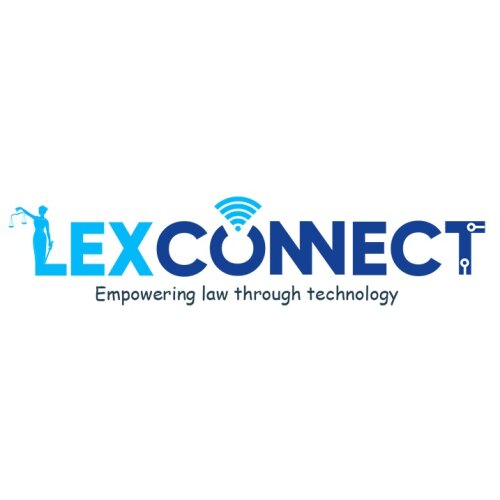Best Media, Technology and Telecoms Lawyers in Fiji
Share your needs with us, get contacted by law firms.
Free. Takes 2 min.
Or refine your search by selecting a city:
List of the best lawyers in Fiji
About Media, Technology and Telecoms Law in Fiji:
Media, Technology, and Telecoms law in Fiji govern the regulations and standards surrounding the use of media, technology, and telecommunications services in the country. This encompasses a wide range of areas such as broadcasting, online content, cybersecurity, data protection, and telecommunications infrastructure.
Why You May Need a Lawyer:
There are several situations where you may need a lawyer specializing in Media, Technology, and Telecoms law in Fiji. These can include disputes over intellectual property rights, breaches of privacy or data protection laws, contractual disagreements with telecommunications providers, or issues related to online defamation and content regulation.
Local Laws Overview:
Key aspects of local laws relevant to Media, Technology, and Telecoms in Fiji include the Media Industry Development Act, the Telecommunications Act, and the Online Safety Act. These laws set out regulations concerning licensing requirements, content standards, data protection, and consumer rights in the media, technology, and telecom sectors.
Frequently Asked Questions:
1. What are the main responsibilities of the Media Industry Development Authority (MIDA) in Fiji?
MIDA is responsible for promoting responsible and ethical media practices, protecting media freedom, and safeguarding the public interest in the media sector.
2. Can I be held liable for defamatory content posted by others on my website or social media platforms?
Under Fiji's laws, website owners and social media platform operators can potentially be held liable for defamatory content posted by third parties if they fail to take reasonable steps to remove or address the content once notified.
3. What are the key provisions of the Online Safety Act in Fiji?
The Online Safety Act aims to regulate online content to protect users from harmful and offensive material, particularly in relation to cyberbullying, harassment, and child exploitation.
4. How are intellectual property rights protected in Fiji's media and technology sectors?
Intellectual property rights in Fiji are protected through laws such as the Copyright Act, the Patents & Designs Act, and the Trademarks Act, which grant creators and innovators legal rights over their works and inventions.
5. What are the obligations of telecommunications service providers under the Telecommunications Act?
Telecommunications service providers in Fiji are required to comply with licensing conditions, quality of service standards, consumer protection regulations, and data privacy requirements set out by the Telecommunications Authority of Fiji.
6. Can I file a complaint with the Telecommunications Authority of Fiji if I have issues with my telecom service provider?
Yes, consumers can lodge complaints with the Telecommunications Authority of Fiji regarding issues such as billing disputes, service interruptions, or breaches of service quality standards.
7. How does data protection law apply to businesses operating in Fiji's technology sector?
Businesses in Fiji that handle personal data are required to comply with the Data Protection Act, which mandates the secure handling, storage, and processing of personal information to safeguard individuals' privacy rights.
8. Is it legal to broadcast foreign television channels in Fiji?
Foreign television channels can be broadcast in Fiji, subject to compliance with licensing and regulatory requirements set out by the Media Industry Development Authority and the Broadcasting Act.
9. What are the penalties for breaching content regulations under Fiji's media laws?
Penalties for breaching content regulations in Fiji can range from fines to suspension or revocation of broadcasting licenses, depending on the severity of the offense and the provisions of the relevant legislation.
10. Are there any restrictions on the use of encryption technologies in Fiji?
While there are no specific restrictions on the use of encryption technologies in Fiji, certain activities involving encryption may require licensing or authorization from the relevant authorities to ensure compliance with national security and data protection laws.
Additional Resources:
For further information and assistance with legal matters related to Media, Technology, and Telecoms in Fiji, individuals can contact the Media Industry Development Authority, the Telecommunications Authority of Fiji, or seek guidance from legal practitioners specializing in this field.
Next Steps:
If you require legal advice or representation in Media, Technology, and Telecoms matters in Fiji, it is advisable to consult with a qualified lawyer with experience in this area. They can provide tailored guidance and support to help resolve your legal issues effectively.
Lawzana helps you find the best lawyers and law firms in Fiji through a curated and pre-screened list of qualified legal professionals. Our platform offers rankings and detailed profiles of attorneys and law firms, allowing you to compare based on practice areas, including Media, Technology and Telecoms, experience, and client feedback.
Each profile includes a description of the firm's areas of practice, client reviews, team members and partners, year of establishment, spoken languages, office locations, contact information, social media presence, and any published articles or resources. Most firms on our platform speak English and are experienced in both local and international legal matters.
Get a quote from top-rated law firms in Fiji — quickly, securely, and without unnecessary hassle.
Disclaimer:
The information provided on this page is for general informational purposes only and does not constitute legal advice. While we strive to ensure the accuracy and relevance of the content, legal information may change over time, and interpretations of the law can vary. You should always consult with a qualified legal professional for advice specific to your situation.
We disclaim all liability for actions taken or not taken based on the content of this page. If you believe any information is incorrect or outdated, please contact us, and we will review and update it where appropriate.
Browse media, technology and telecoms law firms by service in Fiji
Fiji Attorneys in related practice areas.
Browse media, technology and telecoms law firms by city in Fiji
Refine your search by selecting a city.








